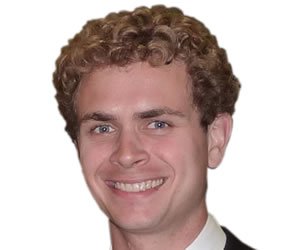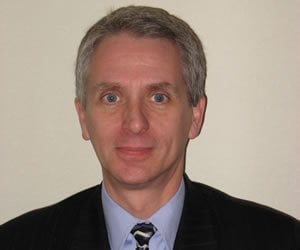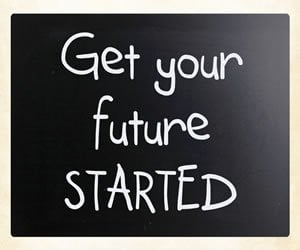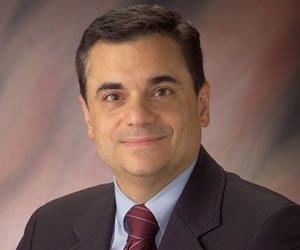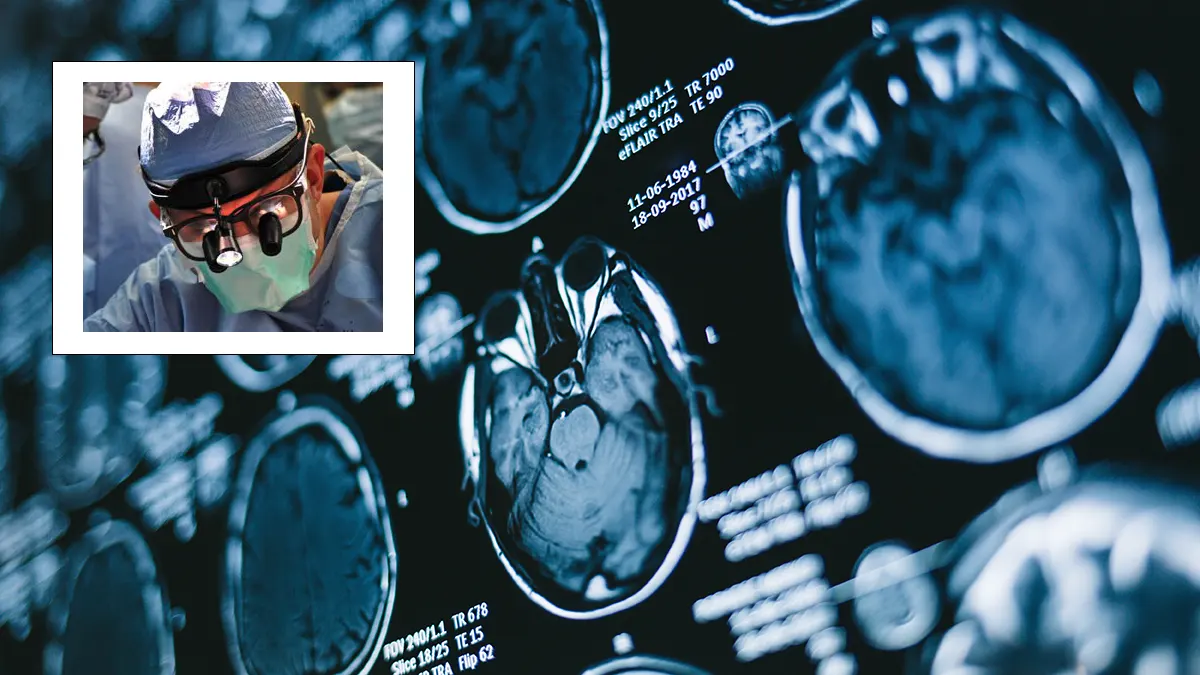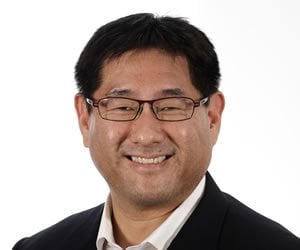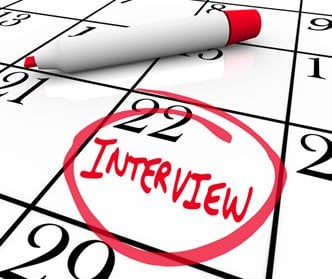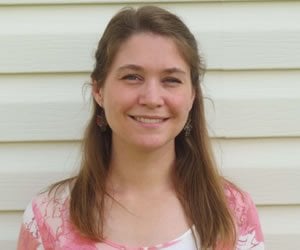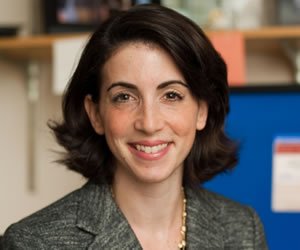After obsessively checking your email every five minutes for weeks, the appearance of your first interview offer brings with it a flood of relief and excitement. All that studying, volunteering, and writing of countless secondary applications has earned you a coveted interview slot. Yet coming on the tail of such excitement is that sense of panic. What now?
interview
20 Questions: Andrew Read-Fuller, DDS, MS, Oral and Maxillofacial Surgery
Dr. Andrew Read-Fuller is a dentist and resident with the Division of Oral and Maxillofacial Surgery at Parkland Memorial Hospital/UT Southwestern Medical Center, with a focus on the broad scope of oral and maxillofacial surgery, including dentoalveolar, orthognathic, cleft and craniofacial, and cosmetic surgery, as well as facial trauma and head and neck cancer. Read-Fuller received his bachelor’s degree in politics from Princeton University (2005), and, most recently, he is a graduate of the UCLA School of Dentistry, where he received his doctor of dental surgery (DDS) magna cum laude (2011) and his master’s degree in oral biology (2011). He is currently active in the Resident Organization of the American Association of Oral Maxillofacial Surgeons.
Dr. Read-Fuller was active with the American Student Dental Association during his time at UCLA, serving as vice president, executive committee member and president of the UCLA chapter. He has earned numerous honors and awards, including the Dr. William S. Kramer Award of Excellence –Omicron Kappa Upsilon (2010), Pierre Fauchard Academy Scholarship (2010), California Dental Association Foundation Scholarship (2010), Webb Family Scholarship –Outstanding Leadership (2009 – 2011), UCLA Affiliates Academic & Leadership Scholarship (2008 – 2010), and ADA Foundation Academic Scholarship (2008).
This is No Lake Wobegon: When Medical School Means You’re No Longer Above Average
“Lake Wobegon, where all the women are strong, all the men are good looking, and all the children are above average.”
– Garrison Keillor, A Prairie Home Companion
While NPR’s Garrison Keillor entertains listeners with weekly monologues highlighting news from Lake Wobegon, his fictional home town, it is that closing line “and all the children are above average” that has taken hold in the popular culture. The Lake Wobegon Effect refers to that normal human tendency to overestimate one’s abilities.
The problem is that an average is just that, an average, meaning that while some are above, there are also those below. We all want to be above average. Who shoots for the mean and makes it into medical school? The truth is, if you made it into medical school – or even if you’re somewhere earlier along the path – you have almost certainly been “above average” academically and otherwise most of your life. You were on the honor roll from the time you started receiving grades. You graduated near or at the top of your high school class, many being valedictorians. You were in your college’s honor society and graduated some version of cum laude. You were accepted to medical school.
Average just isn’t in your vocabulary.
And then medical school happens. . .
20 Questions: Marc F. Stern, MD, MPH, FACP, Correctional Health Care
Marc F. Stern, MD, MPH, FACP, is a correctional health care consultant in private practice. He received a bachelor’s degree in biology from University at Albany (1975), and started his medical studies at Universitélibre de Bruxelles, facultéde Médecine in Brussels, Belgium, and transferred to University at Buffalo School of Medicine where he received his MD (1982). He completed a one-year residency in internal medicine at University at Buffalo Affiliated Hospitals (1985), and a VA/NIH fellowship in primary care medicine and health services research at Regenstrief Institute in Indiana and Richard L. Roudebush Veterans Administration Medical Center (1992). Dr. Stern received his MPH from Indiana University School of Public Health in Bloomington (1992).
9 Things to Do Before Applying to Medical School
Think about including these steps in your path to medical school:
1. Work or volunteer in the medical field. Working or volunteering in a health care-related environment or organization will not only enhance your medical school application, it will benefit you. It’s a chance to see if you enjoy working in the health or medical field, network with like-minded peers, take on increased responsibility and leadership roles, and build your resume.
Consider internships and research opportunities at health care facilities or research institutions in your local community. Shadowing a doctor or health professional is another good way to find out if a career in medicine is right for you. Research and leadership positions on campus are also a great way to build your application and test out this career path.
Get Medical Experience
What You Should Know Before Your First Interview
This article is reprinted with permission from the American Student Dental Association. It originally appeared in the February 2014 issue of ASDA News.

Interviewing is a stressful experience. Knowing some typical interview formats and the expectations of your interviewer can help put your mind at ease while pursuing acceptance into dental school.
20 Questions: Ross D. Zafonte, DO, Physical Medicine and Rehabilitation
Ross D. Zafonte, DO, is Earle P. and Ida S. Charlton professor and chairman of the Department of Physical Medicine and Rehabilitation at Harvard Medical School. He also serves as chief of physical medicine and rehabilitation at Massachusetts General Hospital, as well as vice president of medical affairs research and education at Spaulding Rehabilitation Network. Zafonte received his bachelor’s degree in psychology and biochemistry from University of Georgia (1981) and his DO from Nova Southeastern University College of Osteopathic Medicine (1985). He completed a one-year internship at Henry Ford Bi-County Hospital, followed by a residency in rehabilitation medicine at Mount Sinai School of Medicine, where he was also chief resident. Dr. Zafonte was a program fellow in research enrichment at the National Institute on Disability and Rehabilitation.
Dr. Zafonte has been on faculty at Thomas Jefferson University, University of Missouri, Wayne State University, and University of Pittsburgh. He has published extensively, authoring more than 250 peer review journal articles, abstracts and book chapters. His work can be found in Brain Imaging and Behavior, Critical Care Medicine, Journal of Burn Care & Research, Journal of the American Medical Association, PM&R, Archives of Physical Medicine & Rehabilitation, and Movement Disorders. Dr. Zafonte serves on the Board of Governors for the International Brain Injury Association, as well as the American Congress of Rehabilitation Medicine.
20 Questions: Brian Walcott, MD, Neurosurgery
Brian Walcott shares his thoughts on neurosurgery and research and offers some advice for students.
20 Questions: David Matsumoto, PhD – Psychologist
Dr. David Matsumoto (davidmatsumoto.com) is the founder and director of Humintell (humintell.com), which provides training in the fields of facial expression of emotion, nonverbal behavior, detecting deception and cultural adaptation. He is also a professor of psychology at San Francisco State University (SFSU), and founder and director of SFSU’s Culture and Emotion Research Laboratory, which focuses on studies involving culture, emotion, social interaction and communication. Matsumoto received a bachelor’s degree in psychology and Japanese from University of Michigan in Ann Arbor (1981), and his master’s degree (1983) and doctorate degree in Psychology (1986) from the University of California, Berkeley.
5 Tips for Your Medical School Interview: Advice from a Recent Admit
Think of the medical school interview as a giant, modern dating ritual. Your AMCAS application and secondary essay were the first two online dates, and now you have agreed to meet each other in person. The admissions committee already has a rough skeleton of the greatest hits of your adult life, and they have decided that they really like you. However, before they will extend a proposal, they need to meet you in person, and they are willing to spend enormous amounts of their time and your money to arrange this meeting. What your interviewer writes about you for the admissions committee will either make your application come alive, remain flat on the paper, or tragically fail.
Medical School Interviews: 6 Common Mistakes That Admissions Officers Hate
Medical school interviews come in all different shapes and sizes. Some schools interview one-on-one, some have multiple interviewers, some have multiple-mini-interviews (MMI). Some schools use students, others use faculty, and some use alumni.
20 Questions: Diana Marie Padgett, MD, Pathology
Diana Marie Padgett, MD, an anatomic and clinical pathologist, is president and treasurer at Pathology Associates of Harrisonburg (Virginia), as well as medical advisor to Blood Bank and Point of Care Testing. She received her bachelor’s degree in biology with a minor in biochemistry from University of Tennessee, Knoxville, where she graduated summa cum laude (1998). She received her MD from University of Tennessee Health Sciences Center in Memphis, where she graduated summa cum laude (2003). She also has a one-year degree in Dutch studies from Leiden University (1997), and has successfully completed USMLE Step 1 (2001), Step 2 (2003) and Step 3 (2005). Dr. Padgett completed a residency in combined anatomic and clinical pathology at University of Virginia Health System in Charlottesville (2003-2007), and a fellowship in pediatric and development pathology at University of Tennessee Health Science Center/St. Jude Children’s Research Hospital/LeBonheur Children’s Medical Center in Memphis (2007-2008).
Dr. Padgett is board certified in combined anatomic and clinical pathology and pediatric pathology. She previously worked at St. Jude’s Research Hospital Department of Structural Biology in the Professional Oncology Education Program (1999), as well as University of Tennessee, Memphis, Department of Ophthalmology as a senior research assistant (1998-1999). Dr. Padgett has been published in the American Journal of Surgical Pathology, Infection and Immunity, Surgical Neurology, Archives of Pathology & Laboratory Medicine, American Journal of Neuroradiology, and Ophthalmic Research.
20 Questions: Erica L. Mayer, MD, MPH, Breast Oncology
Erica L. Mayer is a medical oncologist at the Susan F. Smith Center for Women’s Cancers/Dana-Farber Cancer Institute, as well as an associate physician at Brigham & Women’s Hospital and assistant professor of medicine at Harvard Medical School. She’s the faculty education coordinator for breast oncology and director of advanced fellowship in breast oncology at Dana-Farber, as well as director of clinical research at Dana-Farber and Women’s Cancer Center at Faulkner Hospital. Mayer received a bachelor’s degree in both biology and history from Williams College in Williamstown, MA, where she graduated summa cum laude (1995). She received her MD from Harvard Medical School (2000), and her MPH in clinical effectiveness from Harvard School of Public Health (2005). Dr. Mayer’s postdoctoral training included a clinical fellowship at Harvard Medical School (2000-2006), a residency in internal medicine at Brigham & Women’s Hospital (2000-2003), a chief residency in internal medicine at Faulkner Hospital (2002-2006), and clinical fellowships in both medical oncology and medicine at Dana-Farber/Partners Cancer Care and Brigham & Women’s Hospital, respectively (2003-2006).
Dr. Mayer is a member of the Massachusetts Medical Society, American Society of Clinical Oncology, Cancer and Leukemia Group B, and Translational Breast Cancer Research Consortium. She’s involved in numerous funded research projects focusing on the role of novel biologic agents in the treatment of advanced breast cancer, and she has been published in numerous peer-reviewed publications including Nature, Journal of Biological Chemistry, Clinical Breast Cancer, Journal of Clinical Oncology, American Journal of Surgery, Annals of Oncology, and Clinical Cancer Research.
20 Questions: Jennifer Hatfield MHS, CCC, SLP
Jennifer Hatfield, MHS, CCC, SLP, is owner, president and speech language pathologist at Therapy and Learning Services, Inc. serving the greater Chicago and northern Indiana areas, as well as the creator of both Little Fingers Speak (an infant sign language program) and The Munch Bunch (a food exploration group for picky eaters). Hatfield received a bachelor’s degree in communication disorders with a minor in psychology from Valparaiso University in Indiana (1992). She received her master of health science degree (MHS) from Governor’s State University (1996).
Protecting Your Online Identity Before Applying
“Dear Mr. [Last name], We regret to inform you….” Brutal. I wasn’t quite rejected. I had gotten the deferral-letter-of-death.
What Is Your Weakness?
Answering a common but challenging interview question.
Mock Interviews Are Key for the Prepared Predental Student
What can you do to prepare for the dreaded dental school interview?
20 Questions: Anthony S. Youn, MD, FACS

Anthony Youn, owner of Youn Plastic Surgery, PLLC, in Troy, Michigan, earned his MD from Michigan State University College of Human Medicine in 1998 before participating in a general surgery residency program at Grand Rapids Medical Education and Research Center for three years. From there, Dr. Youn focused on plastics, serving a two-year plastic surgery residency with Grand Rapids Medical Education and Research Center (MERC, formerly GRAMEC), followed by a one-year Aesthetic Plastic Surgery Fellowship at the Ellenbogen Plastic Surgery Institute with Dr. Richard Ellenbogen in Los Angeles.
What Will You Do If You Don’t Get Into Medical School?
Dr. Jeremiah Fleenor discusses strategies for answering the question, “What will you do if you don’t get into medical school?”, as well as how to strengthen your application for future application cycles.
20 Questions: Michelle Au, MD, Author
Michelle Au, MD, is an attending physician of anesthesiology at St. Joseph’s Hospital, Atlanta, and author of the new book This Won’t Hurt a Bit (And Other White Lies): My Education in Medicine and Motherhood. Au, who graduated magna cum laude from Wellesley College in 1999, was a weekly humor columnist and cartoonist with The Wellesley News for three years (her medical comic strips have been featured at numerous academic medical centers internationally) before heading to Columbia University College of Physicians and Surgeons, where she earned her MD in 2003.
For years, Au has documented her experiences in academic medicine, as well as her family life (she is married to Dr. Joseph Walrath and they have two sons, Cal and Mack), on her blog, “The Underwear Drawer.” Her writing has been featured on WebMD, The Student Doctor Network, Metafilter, and Revolution Health.
As Au says in her book, “The only people who can understand what it’s really like to be a medical student are people who are in medical school themselves.” In short, This Won’t Hurt a Bit is a must-read for those in medical school, as well as an entertaining read for civilians.
Here are her responses to our questions:
Why did you choose to become a physician?
My parents are both doctors, and since it was the first profession I was ever meaningfully exposed to, maybe it imprinted on me in some way. I know that makes me sound like a baby duck or something, but it’s true, and quite frankly, there’s no better selling point for a profession than family members who clearly find their careers challenging and fulfilling. I did try to entertain other notions before committing to medical school (my dad in particular was keen for me to go into finance—this was back in the mid-90s, of course, when going into finance was considered a good thing), but I’m terrible at that kind of stuff, and anyway, it all seemed so boring compared to a medical career. Ultimately (and this is the answer I gave during my medical school interviews, one that luckily turned out to be true) what you choose to do in life should be at the interface of what you find fascinating and what you do well. In medicine, I feel like I have both.
If you had it to do all over again, would you still become a physician? (Why or why not? What would you have done instead?)
I feel like this is the litmus test for any big decision in life after the fact, and I talk about this with Joe often. Yes, I would absolutely become a physician again. It’s the best job in the world, and I can’t imagine doing anything else. I feel like you don’t hear physicians saying that so much anymore—everyone’s always complaining about health care reform and insurance and HMOs and litigation—but I honestly feel that there are few other careers where ordinary people can so consistently and meaningfully help so many people just in the course of an average day. Most days you kind of forget that, but there are always moments where you just kind of step back and realize, “Hey, it’s pretty cool that I get to do this, and that because of this special training I got, I know how.”
I have no idea what I would have done if I weren’t a doctor. I am terrible at everything else. That’s kind of a joke, but not really. Actually, let me revise: I’m terrible at everything else with any hope of generating a meaningful income to support my family. (Though when it comes to procrastinating on the Internet or eating large volumes of fried snack foods, I excel.)
With your description of scutmonkey, it’s a wonder anyone wants to become a doctor! What are your tips for making the most of scut work?
That’s funny, I hope I haven’t scared anyone off with my descriptions of what it’s like to be a scutmonkey! Look, every profession has its scut work, and every field has its scutmonkeys. They’re just called different things, and mostly, they don’t involve manually disimpacting anyone of feces. The way I look at scut work is this: everyone has to do it. Whining about it doesn’t make it go away. Most forms of scut actually are helping real patients, no matter how indirectly. And the more egregious the scut (I had an attending who once made me get down on my hands and knees to wash a stool used in the OR—stool as in the furniture this time) the better your stories will be afterwards. There’s nothing more cathartic after a day full of meaningless scut than going out with your friends for beers afterwards and trading stories.
What do you think are the three most important things to consider when deciding rotation requests for fourth year?
This is a tricky question, because my personal experience leads me to believe that medical students are forced to narrow down their specialty choices too soon, before they’ve been exposed to enough. In order to mount a strong residency application (so we’re told), students have to have a good lineup of electives for the first half of their fourth year of med school, which means that you have to start figuring out what you want to go into by early in the spring of third year. That’s too soon. There are still at least three or four rotations that you haven’t even tried at that point! (Tellingly, my fourth year of med school, I narrowed down my fields to either internal medicine or pediatrics by March, and by the time I did my one-week anesthesia rotation in May, I totally blew it off.)
So my advice, colored by the fact that I actually switched out of my original residency (pediatrics) into another field (anesthesiology) mid-stream, is this: keep an open mind. If there’s a particularly difficult elective to get that has a broad range of applicability—like, say, a surgical ICU rotation—by all means go for it, but don’t let yourself get boxed in too soon. I wish I could say I was the only person I knew who decided a few years too late that the field in medicine they were in was not the fields they were ultimately destined for, but I’m definitely not. I’d say at least 5-10% of the people I know in medicine have switched fields or focus at some point in their training.
Anyway, the current system isn’t going to change anytime soon, so I’ll just say that when it comes to fourth year, choose based on the field that you think you want to go into, but stay open to other options, and get a good, strong base for your medical career in general. Particularly good preparatory rotations that I saw at my med school were ICU rotations, rotations through the ER (if you have access to a good ER), and a good meaty rotation on a general medical ward. This will put you in good standing for your intern year.
Looking back, do you wish you had not decided on pediatrics? Why or why not?
That’s a hard question to answer, because there are some decisions, even if they were wrong at the time, still provide experiences that have value in the long term. Do I wish I didn’t spend an extra year of my life as a junior resident, getting no pay, no sleep, and eating scary Chinese takeout at 2 a.m. off the back of a Frisbee while on call for pediatric neurology? Absolutely. But do I wish I could go back and have never decided to do those two years in pediatrics in the first place? Not really.
First of all, doing two years of pediatrics residency at The Children’s Hospital of New York was an incredible experience, and gave me an incredibly sound background in medicine and physiology that only enhanced my anesthesia practice. Also, I know it sounds terrible to say that we’re much nicer to our pediatric patients and their families than we are to our adult patients, but it’s absolutely true. I think the sensitivity with which we treat our pediatric patients is probably how we should treat all our patients, and though I am as guilty as anyone of lapses on this front, I think my two years as a peds resident really shaped my bedside manner in a good way, particularly with the more difficult or (as the euphemism goes) “high-maintenance” people we care for. Finally, I made a lot of good friends and mentors during my peds residency, and I wouldn’t give up the chance of having met them for anything.
Now that you are in your specialty, has it met your expectations?
Because of the nature of my entering the field of anesthesiology, I did a lot of research before I ultimately committed to switching. So I would say that yes, absolutely, my career in anesthesiology is as was billed to me—that is to say, challenging, exciting, hands on, and more flexible than many other fields with respect to work-life balance. There were some adjustments after I graduated in switching mindset from academic practice to private practice, but the culture of anesthesia is the same throughout, and I do think we manage to recruit physicians who are both fiercely intelligent but also laid back and pleasant to work with. It’s been a good fit for me.
Describe a typical day at work.
Most mornings I wake up around 5:45 a.m. to get ready for work, and aim to be dressed and ready for the OR by 6:30 or 6:45 a.m. Mornings are usually the busiest times for me, and it depends what I’m doing in particular that day (in our practice, anesthesiologists do a good mix of their own cases and supervising anesthetists, similar to how I was supervised by an attending as a resident).
If I’m doing a solo case, I’ll spend half an hour or so setting up my room—the standard machine checks, drawing up meds, making sure my cart is stocked, exactly the same stuff I was doing as a resident—before going out and talking to my patient. If I’m supervising, usually I’ll have three or four cases running at the same time, so there’s some hustle to see them all and make sure that they’re appropriately pre-opped with the right lines, monitors, and meds for their particular medical history and surgery. The first round of cases usually start at 7:30 a.m., which means that anesthesia induction usually takes place between 7:15 and 7:30 a.m. This is usually not a problem for cases that I’m doing solo, but if I’m supervising multiple rooms that all start within the same time window, this can be something of a hustle. My practice is very good, though, and if I get caught in one room dealing with a difficult patient—difficult IV access, unexpected difficult airway, patient crashing on induction—all my partners are there to keep an eye on my other rooms or help me out in mine.
Even though the work we do is very different, I’d say that the pace of a busy anesthesia practice at a hospital with high acuity patients (like the hospital where I work) is most similar to the pace in a busy ER. The flow of patients is just relentless. You’re starting cases, you’re dealing with intraop issues, you’re extubating patients, you’re seeing the next patient, the next patient, the next patient. It’s very frenetic sometimes, and you really have to be good at triage and organization and recognizing problems or potential problems quickly. You have to be good a staying calm and moving on. If I’m supervising multiple rooms, I really don’t sit down a whole lot over the course of the day. Sometimes, when it looks like there’s a tiny window between starting one thing and finishing another, I manage to sneak in some lunch.
If I’m not on call, usually I’ll get out of work between 3 and 5 p.m. This works out well—it’s not usually early enough to pick my older son Cal up from school (he’s in kindergarten), but it does usually get me home to fix the kids dinner. If I’m on call, I stay later than that—sometimes much later—but the payoff is that I get off work early the next day, which means that I can schedule things that are otherwise impossible for me to do, like, say, go to the dentist. If I know far enough in advance that Cal has an event at his school, like a class play or something like that, I can request to be on call the day before so I can get that post-call day off. My practice is very good about things like that, and it works out pretty well, except that it ensures that any time I go to Cal’s school, I’m super-tired!
Are you interested in combining a career as a physician with creating comics or graphic novels? Here are some other interviews with physician-authors:
What mix of clinical/research/teaching work do you do? How much power do you have to change that mix?
I work in private practice, I am basically 100% clinical. I wouldn’t mind doing a little more teaching, but having spent many years in academic medicine in training, I kind of like how streamlined private practice is, and having that clarity of focus.
If you took out educational loans, is/was paying them back a financial strain?
I was lucky enough to finish medical school without any educational debt, but Joe and I are married, so his loans are my loans (thanks, honey!). The loan payments are not inconsequential, that’s for sure, but between paying for childcare and school and now a mortgage, it’s just one other thing that we budget for. Maybe we’ll pay it all off before man walks on Mars and we’re all zooming around on hovercrafts.
On average: How many hours a week do you work? How many hours do you sleep each night? How many weeks of vacation do you take?
Average work week (and this varies based on whether or not I take call, if I have to take call on the weekends, and flux in the ORs based on case volume and whatnot) I work about 45-55 hours a week if I’m not on call on the weekends. If I am taking weekend call, all bets are off.
When it comes to sleep, I learned long ago that in order to be good at my job, I need sleep. It’s actually dangerous for patients when I come in under-rested, so I try to get at least eight hours a night. Of course, given what time I get up, this means I am almost never awake past 10 p.m., and going to sleep at the same time as your kids means that you never have any time to get anything done, ever. Ever. This can be a real problem.
My practice is good about vacation time, I get about eight weeks a year. I know this sounds incredibly luxurious, and believe me, I am lucky, but it’s also very important. There are few jobs as all consuming and stressful as a job in medicine, particularly in any high-acuity setting like the OR. It’s easy to burn out, and I see symptoms of burnout with people I work with every day. Physical and mental vacations from the hospital at regular intervals are vital, and I’m so, so lucky to be in a practice that appreciates that.
(I just read over my answers for this question—50 hour work week, eight hours of sleep, and eight weeks of vacation—and I could feel the resident version of me in the past kind of wanting to punch me in the face.)
When you met Joe, how did you balance a relationship and medical school? Do you think it’s easier or harder to have a partner also in medicine/medical school?
In most respects, it’s easier to have a partner who is in medical training, because they always understand. The process of medical training is both grueling and difficult to explain, and I can’t imagine having to put into words, week after week, why I won’t be home for dinner again and why I get home every night and immediately fall into bed comatose for four hours before having to wake up and do it all again. There’s a shared culture and language when both you and your partner are in medicine, and that’s so helpful when you don’t have that much time to spend together.
Sometimes having a spouse who is in medicine is disadvantageous however, and I would say this is most apparent when it comes to our family life. I think it’s easy and pat to say that we put our kids before everything and family time is sacrosanct, but if it’s the choice between being home in time to make your kids dinner and staying that extra hour at work with your patient who almost died on the OR table—you stay with your patient. That’s what it means to be a doctor. Usually Joe and I can sort of negotiate it between the two of us—if I have to stay late, for example, he tries to get out on time, or close to it—but life in the hospital is unpredictable, and there have been more times than we can count that we’ve both had unexpected emergencies to deal with. The importance of reliable and quality childcare cannot be overstated in the two-physician family!
Do you think it’s important for medical students to have “civilian” friends? Why?
Though as the years go by, my list of civilian friends dwindles (I blame myself, I am not very good at keeping in touch with people and were it not for platforms like FaceBook I don’t even know if I would be able to find them) but the non-medical friends I have, I cherish. Sometimes you need someone to tell you that there is life outside of what you know, because believe me, when you work in a hospital as do all your friends, sometimes it is not so obvious. Also, after more than 10 years immersed in medicine, I find the details of other jobs—even the most everyday, routine jobs, like working retail—fascinating. Stories outside your experience are always interesting, aren’t they?
In your position now, knowing what you do – what would you say to yourself 10 years ago?
“Don’t stress so much. You’re doing OK. It’s all going to work out. It may not be a straightforward path, and you may not end up where you thought you would be, but you’re going to get there, and you’re going to be happy.”
(At which point, the me of 10 years ago would just ignore the me of today, continue to hyperventilate, and then continue color-coding her pharmacology note cards.)
What information/advice do you wish you had known when you were an undergraduate? (What mistakes or experiences have you encountered that you wished you had known about ahead of time so you could have avoided?)
The only thing I regret about my undergraduate experience is that I didn’t have enough fun. I was pre-med, and I was very busy with non-recreational extracurriculars (things like writing and students government, stuff like that) and I think that somewhere along the way, I kind of forgot to just have a good time. I had the rest of my life to be boring and do adult things and have way too much responsibility—and I kind of wish I had realized that more at the time.
What do you like most and least about being a physician and interacting with patients?
The thing I like the most about interacting with patients is the level of trust and intimacy that we, as doctors, are granted almost immediately. Back when I was a peds resident, it occurred to me one day that outside of the hospital, I rarely ever physically touched strangers, whereas in the hospital, within 30 seconds of meeting someone I was holding their hands, touching their faces, just this incredibly intimate contact that would be completely out of place in any other setting. As doctors, people tell us things within minutes of meeting us that they usually don’t tell other people, sometimes things they’ve never told anyone. It’s an incredible privilege and responsibility to be immediately brought into the fold that way, and to be trusted.
I don’t know that there’s any one thing that I dislike about patient interactions, but with respect to what I said above, the opposite also holds true. When patients decide before they even speak with me that they don’t trust me, or are immediately antagonistic before they have any reason to be, it makes it very difficult for me to do my job well. The patient and the doctor are on the same team, or they should be. We’re all there together working to make sure the patient has the best outcome possible.
From your perspective, what is the biggest problem in health care today?
The biggest problem is that physicians are starting to lose hope in the system. Doctors don’t want their own kids to go into medicine anymore. How sad is that?
In the last chapter of the book, you mention the “mommy” job. As far as women have come in the medical field, why do you think there is still a double-standard in medicine?
First off, let me say again for the record that I hate the term “mommy” being attached to anything. I know it’s just part of the cultural landscape and I parroted it myself in the book, but something about calling something a “mommy job” or a “mommy blog” or “mommy lit” seems infantilizing and putting a cute label on a large and powerful demographic in a way that seems reductionist.
Given that I’m in the described demographic, it’s hard for me to address this in a way that doesn’t sound like complaining, but—yes, I think there’s a double-standard in medicine. Just a few months ago, that study came out of Mass General that shows a significant pay gap between male and female physicians newly out of training, even after controlling the data for specialty, hours and other potentially relevant factors. What’s the reason for this differential? I think that’s probably going to be a subject for debate and future study, but I don’t think one has to look much father than the pay differential in other fields to recognize that this is a problem across the board and that medicine is not immune. The numbers are just a symptom; the etiology is that society, for whatever reason, does not have the same expectations for women that it does for men. And we’re not going to see parity until those expectations are recalibrated.
Do I have a “mommy job?” Well, in the sense that it is a job where I can work full time and still feel like I have a reasonable amount of energy to devote to my children and husband? Yes. Is it qualitatively or quantitatively different than the job that the full-time “non-mommies” in my practice are doing? No.
How do you recommend medical students get over the fear of fear?
Well, the thing is, I think fear is a good thing. Fear is knowing your own limitations. Fear is understanding that the responsibility you have towards your patients is awesome. Fear is not committing hubris. Medicine is unlike many other fields, and when you make bad, rash decisions in medicine, people can die. Fear, if it makes you think at least a little harder about something or take that extra second to make sure everything is right before you push that medication or make that incision—is doing its job.
The part where fear ceases to be good is when it starts to paralyze you. When you find that you can’t function at your job because you’re so afraid of doing something wrong and hurting someone, that’s when you need to work on your fear level.
But just remember—everyone has been there. Everyone’s been afraid of hurting their patients, and everyone—even the oldest, crustiest attending on the service—has been new at this game at some point. Everyone has had to do something, good or bad, for the first time. But it’s a hospital, and there’s no shortage of people to ask for advice, and no shortage of people to help. Sometimes being a doctor is about knowing your own limitations, but sometimes it’s about doing what you know what you need to do, even though there’s a chance of failure.
What do you like to do for relaxation or stress relief? Can you share any advice on finding a balance between work and life?
I think what people do for relaxation has to be largely tailored to their personality. Some people in my group use their free time on the weekends to train for triathlons, for example. To me, that’s just beyond belief, but more power to them! I, however, prefer a more sloth-like lifestyle. For the most part, most of my off time is spent with my kids or doing domestic things. My hobbies outside of making sure my kids stay alive and in showroom condition are writing and photography—but that pretty much goes for everyone these days, right?
I would just say that, in terms of work life balance, make sure that when you are not at work, make sure you’re really not at work (mentally as well as physically); and when you are at work, make sure your whole head is in the game. In my opinion, work-life balance is not as much about quantifying the hours spent doing each (though putting in the hours is important, too), as much as fully committing yourself to whatever task you happen to be doing at the moment.
What would/will you tell your son(s) if one or both want to become a doctor–would you dissuade them like your parents did (to you)? Why or why not?
If Cal or Mack wanted to go into medicine, I would tell them to go for it. I don’t think you can necessarily be a good doctor unless at least part of you thinks that it’s the best job in the world. If my sons wanted to go into medicine despite growing up with two physician parents, seeing how difficult it can be at times, I would be delighted and very proud of them.
But I’d also tell them what I tell everyone else who is interested in a career in medicine, that they should think very critically about that decision and make sure that it’s really what they want to do. It’s a long, hard, and expensive road to becoming a doctor, and not one that should be taken lightly. If they’re not 100% sure that that’s what they want, they should take a few years, do other things, allow their interest in medicine to either solidify or give way to something else. There are also many other paths within medicine that don’t involve medical school. But if they’re sure, really sure, that they want to become doctors, then I’d tell them to go for it. Not that it’s going to matter by that point—they’re not going to listen to their boring old mom anyway.


